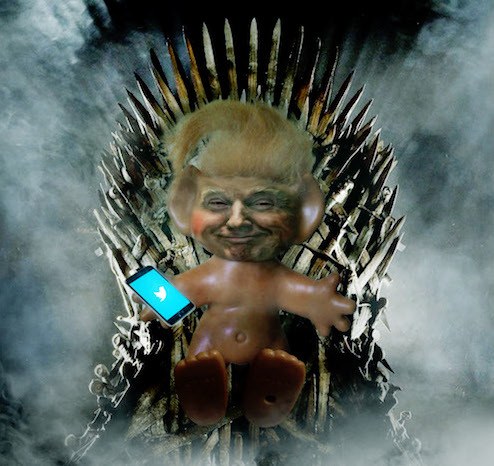
To political junkies, Donald Trump’s various (mis)representations of his July 25th phone conversation with President Volodymyr Zalensky are same old, same old stuff. Why? Because for years now assiduous journalists have been busy filing stories about Donald J. Trump’s deceptive ways. To be sure, such a focus is hardly surprising, given the amount of material with which journalists have to work. The fact that the Washington Post’s running tab of President Trump‘s “false or misleading claims” passed the 12,000 mark on August 5, 2019–Trump’s 928th day in office—is suggestive in this regard. And, of course, that number has grown considerably since that time.
The problem with such stories, however useful, relates to the manner in which The Donald’s deceptions are characterized. Almost without exception, the stories have a paint-by-numbers, Donald-Trump-Is-A Liar quality to them. But characterizing Trump as a liar assumes that he is aware of, let alone interested in what is true, and is intentionally trying to deceive people. I do not believe this to be the case when it comes to President Trump. Rather, in my view the President doesn’t care a whit about whether what he says is true or false. As a trader in sophistry, he wishes only to persuade.
The moral philosopher Harry G. Frankfurt at once captured and conveyed what I am getting at here in a sparkling 1986 essay, entitled “On Bullshit,” published in the high-brow journal Raritan. In this rigorously argued essay, Frankfurt brilliantly—and often humorously—distinguishes among various forms of misrepresentation and deception, focusing primarily on lying, humbug, and, well, bullshit. To lie is willfully to misrepresent or deceive what one thinks to be true. Humbug is also deceptive, but falls short of outright lying, mainly because at the margin the primary concern on the part of the purveyor is rather more exaggeration and pretentiousness than falsehood qua falsehood.
Bullshit, according to Frankfurt, is something else altogether. A liar is trying self-consciously to “lead us away from a correct apprehension of reality,” and a purveyor of humbug is primarily concerned with representing phenomena not in a patently false manner, but in such a way as to reflect well on himself/herself. For the bullshitter, though, “the truth-values of his statements are of no central interest…” His statements may, in fact, be true, but truth and falsity are irrelevant. Indeed, the bullshitter, Frankfurt contends, is:
“… neither on the side of the true nor on the side of the false. His eye is not on the facts at all, as the eyes of the honest man and of the liar are, except insofar as they may be pertinent to his interest in getting away with what he says. He does not care whether the things he says describe reality correctly. He just picks them out, or makes them up, to suit his purpose.”
Donald Trump, anyone? So rather than fixating on the precise number of times the President makes “false or misleading claims,” it would behoove all of us more fully to understand the context in which he operates. He is, after all, The Donald, the epitome of transactional man, in it for himself.
A few writers have caught on to the fact that he is less a liar than a bullshit artist in a Frankfurtian sense—Roger Cohen of the New York Times comes to mind in this regard—but all of us would benefit from deeper appreciation of Frankfurt’s insight. Liars are responding to the truth, even as they distort it, and “to that extent respectful of it,” as Frankfurt puts it. Donald Trump, it is clear, has little respect for anything or anyone other than himself. Truth doesn’t stand a chance in this context, and is beside the point in any case.